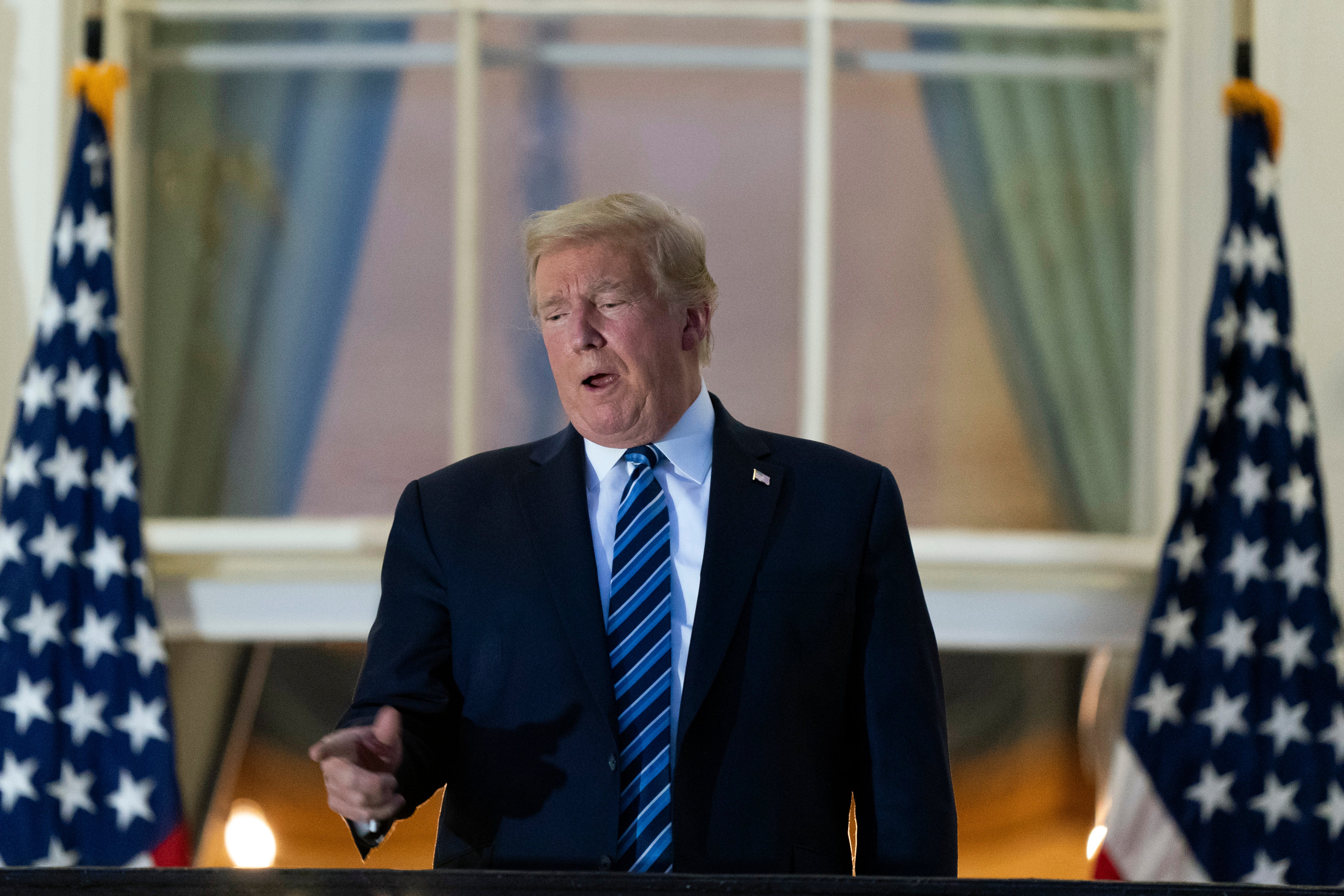Trump says experimental drugs may have saved him from virus
President Donald Trump says he could have become very ill and might not have recovered from COVID-19 had he not been treated with experimental drugs

President Donald Trump said Friday he could have become very ill and might not have recovered from COVID-19 without experimental drugs, a far worse outlook than what his doctors were telling the American people.
“I was asking the doctors today ... and I said, ‘How bad was I?’ They said: ‘You could have been very bad. You were going into a very bad phase,'" Trump told Rush Limbaugh during his radio show.
“It looked like it was going to be a big deal and you know what that means, right? That means bad because I've lost five people,” Trump added, referring to acquaintances who have died.
Trump said that after contracting the virus he was “not in the greatest of shape.” He added that “I might not have recovered at all” without treatment with experimental drugs.
Trump's comments on the seriousness of his case of coronavirus contrast with generally upbeat public statements about his condition that his doctors released after his diagnosis and while he was hospitalized.
The White House said Trump's hospitalization at Walter Reed National Military Medical Center, which began Oct. 2, was precautionary and his symptoms were mild.
On Oct. 3, Trump’s physician gave a televised briefing and painted a sunny picture of the president’s situation, emphasizing that he was still working, walking on his own and not laboring to breathe. But Dr. Sean Conley notably refused to provide some specific details, including repeatedly sidestepping questions about whether the president had at any point received supplemental oxygen. It was later learned that Trump had received oxygen before he was taken to Walter Reed.
Trump's comments tracked most closely with an update provided by White House chief of staff Mark Meadows after his hospitalization. Meadows offered few details, but said the president’s initial situation had been “very concerning” and, though his health was improving, the following 48 hours would be critical.
Trump credited his recovery to an experimental antibody drug made by Regeneron Pharmaceuticals Inc. “It was primarily this one drug," Trump said. "It just wiped out the virus. It wiped it out.”
The drug is not a cure, but experimental antibody treatments like the one Trump was given are among the most promising therapies being tested for treating and preventing coronavirus infections. The antibody drugs, which aim to help the immune system clear the virus, are still in testing. Their safety and effectiveness are not yet known and there is no way for the president or his doctors to know whether the drug had any effect in his case.
Trump is among fewer than 10 people who have been able to access the drug under “compassionate use” rules without enrolling in a study. He said he is “bugging” the Food and Drug Administration to quickly authorize emergency use of the drugs more broadly.
Trump said that if the antibody drugs made by Regeneron as well as Eli Lilly succeed in clinical trials, they would constitute a “cure.”
“It's a cure and I'm talking to you today because of it,” Trump said. “And, you know, because I think I could have been a ... bad victim. I fit certain categories that aren't so great. ... I'm telling you this is a total game-changer.”
The White House did not respond to questions regarding the discrepancies between Trump's account of his condition and the weekend updates given by his doctors.
Bookmark popover
Removed from bookmarks